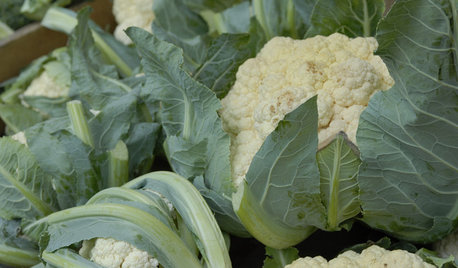Cheddar Cauliflower -- Monsanto
aggiebee
11 years ago
Related Stories

GARDENING GUIDESCool-Season Vegetables: How to Grow Cauliflower
It may be fussy about growing conditions, but the taste of cauliflower fresh from your fall garden is worth the effort
Full Story
HEALTHY HOME12 Ways to Set Up Your Kitchen for Healthy Eating
Making smart food choices is easier when your kitchen is part of your support team
Full Story
KITCHEN DESIGNWorld of Design: Favorite Recipes From Food Lovers Around the Globe
Travel with your tastebuds and experience for yourself these international foodies' favorite dishes
Full Story





nc_crn
digdirt2
Related Professionals
San Juan Landscape Architects & Landscape Designers · Woburn Landscape Contractors · Americus Landscape Contractors · Brockton Landscape Contractors · Fairview Landscape Contractors · Flagstaff Landscape Contractors · Fort Hunt Landscape Contractors · Hampton Bays Landscape Contractors · Rockville Landscape Contractors · Seymour Landscape Contractors · Stony Brook Landscape Contractors · Thonotosassa Landscape Contractors · Vashon Landscape Contractors · Webster Groves Landscape Contractors · Lake Forest Driveway Installation & MaintenanceaggiebeeOriginal Author
jrslick (North Central Kansas, Zone 5B)
jonfrum
nc_crn
chervil2
landscraper82
aggiebeeOriginal Author
digdirt2
aggiebeeOriginal Author
nc_crn
flora_uk
FrancesDee
little_minnie
Deeby
seysonn
naturegirl_2007 5B SW Michigan
planatus
nc_crn
vgkg Z-7 Va
macky77